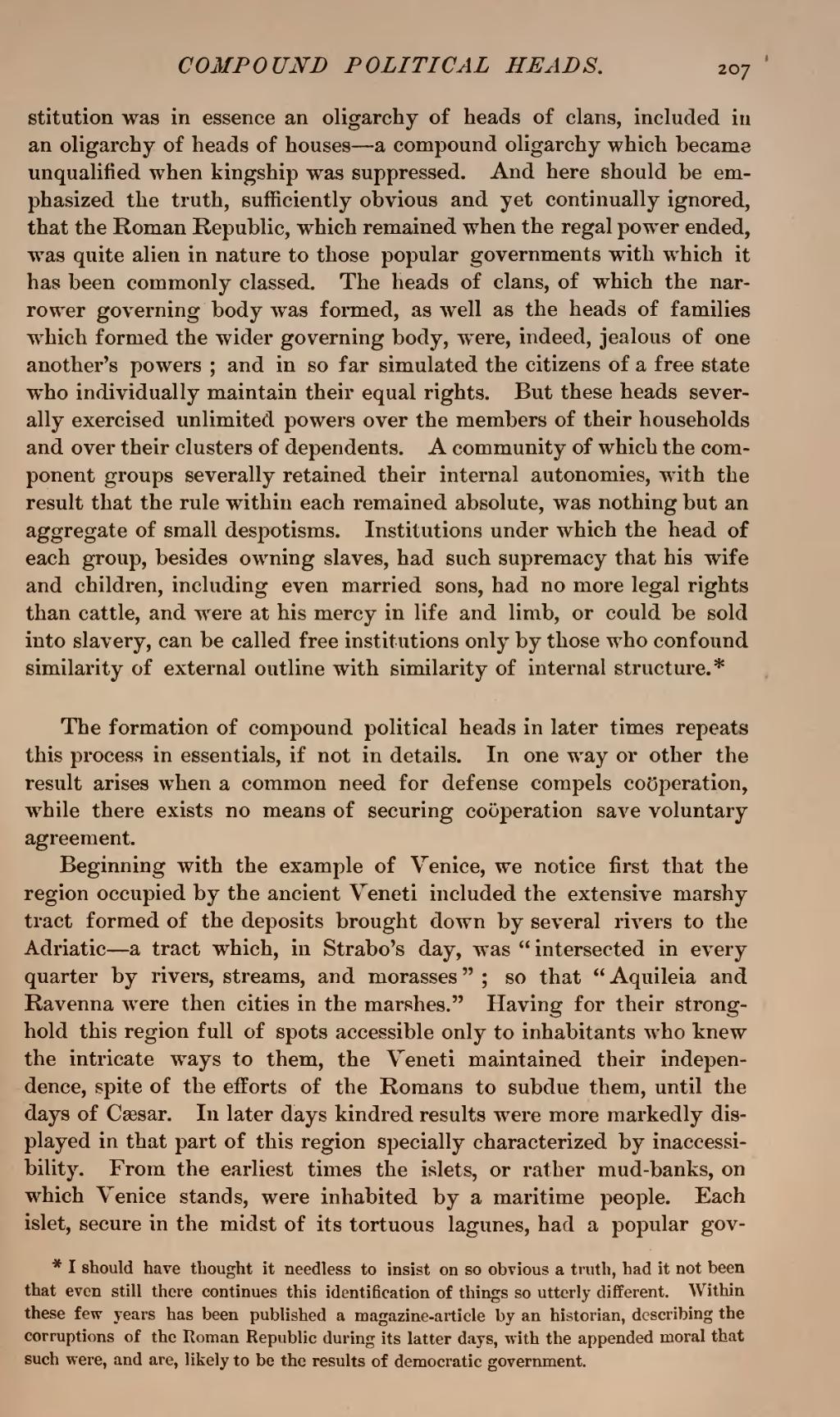stitution was in essence an oligarchy of heads of clans, included in an oligarchy of heads of houses—a compound oligarchy which became unqualified when kingship was suppressed. And here should be emphasized the truth, sufficiently obvious and yet continually ignored, that the Roman Republic, which remained when the regal power ended, was quite alien in nature to those popular governments with which it has been commonly classed. The heads of clans, of which the narrower governing body was formed, as well as the heads of families which formed the wider governing body, were, indeed, jealous of one another's powers; and in so far simulated the citizens of a free state who individually maintain their equal rights. But these heads severally exercised unlimited powers over the members of their households and over their clusters of dependents. A community of which the component groups severally retained their internal autonomies, with the result that the rule within each remained absolute, was nothing but an aggregate of small despotisms. Institutions under which the head of each group, besides owning slaves, had such supremacy that his wife and children, including even married sons, had no more legal rights than cattle, and were at his mercy in life and limb, or could be sold into slavery, can be called free institutions only by those who confound similarity of external outline with similarity of internal structure.[1]
The formation of compound political heads in later times repeats this process in essentials, if not in details. In one way or other the result arises when a common need for defense compels coöperation, while there exists no means of securing coöperation save voluntary agreement.
Beginning with the example of Venice, we notice first that the region occupied by the ancient Veneti included the extensive marshy tract formed of the deposits brought down by several rivers to the Adriatic—a tract which, in Strabo's day, was "intersected in every quarter by rivers, streams, and morasses"; so that "Aquileia and Ravenna were then cities in the marshes." Having for their stronghold this region full of spots accessible only to inhabitants who knew the intricate ways to them, the Veneti maintained their independence, spite of the efforts of the Romans to subdue them, until the days of Cæsar. In later days kindred results were more markedly displayed in that part of this region specially characterized by inaccessibility. From the earliest times the islets, or rather mud-banks, on which Venice stands, were inhabited by a maritime people. Each islet, secure in the midst of its tortuous lagunes, had a popular gov-
- ↑ I should have thought it needless to insist on so obvious a truth, had it not been that even still there continues this identification of things so utterly different. Within these few years has been published a magazine-article by an historian, describing the corruptions of the Roman Republic during its latter days, with the appended moral that such were, and are, likely to be the results of democratic government.
